Law enforcers flout HC ban on media trial
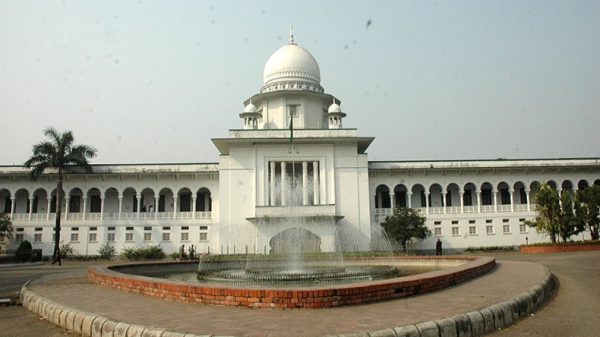
Shawdesh DEsk:
Officers of the law enforcement agencies continue to hold press briefings after arresting accused people defying directives of the High Court that banned such practices.
The law enforcers are also violating the High Court order banning the parade of arrested persons in vests inscribed with ‘criminal’ before the media.
Rights lawyers called the practices a media trial of the accused, many of whom were found not guilty of the alleged crimes by the courts or during the investigation later.
Senior lawyer and human rights activist ZI Khan Panna told New Age that law enforcers cannot make impromptu news briefings on subjudice matters as it creates an obstruction to establishing justice and violates human rights.
Investigators often prepare charge sheets following statements made earlier by their superiors, he said.
Moreover, such practice violates the High Court directives, Panna said, adding that violation of the High Court directive means violation of the constitution under Article 111 of the constitution.
Panna said that the law enforcers make a media trial by producing arrested people before the media and calling them criminals, but many of them finally get acquitted by the court after trial.
The High Court, in a verdict on August 29, 2019, asked the law enforcers not to make statements to the media during the pendency of investigations as the investigation officers tend to toe their higher officers’ comments in completing the probes.
The bench of Justice M Enayetur Rahim and Justice Md Mostafizur Rahman issued the directive while granting bail to Siddiqua Minni, 19, who was implicated and detained in the murder case of her husband Rifat Sharif at Barguna on June 26, 2019.
The court also asked the inspector general of police to give necessary instructions to all the law enforcement agencies so that they refrain from projecting any accused immediately after his or her arrest in the media.
The High Court directed the home ministry secretary and the inspector general of police to make guidelines setting the limits for the police, the RAB, and other law enforcement agencies in briefing the media during the pendency of probes.
In December 2015, the High Court, in another verdict, asked the inspector general of police to ensure law enforcers do not parade any accused in front of the media before he or she is produced in court.
The ban came while the court was delivering a verdict in the case of a JMB leader who exploded a bomb at the time of a police media briefing at the Gazipur police superintendent’s office in February 2009.
The order prohibiting the parade of arrested persons before the media was given by the High Court bench of Justice AHM Shamsuddin Choudhury and Justice Farid Ahmed on December 11, 2012, after hearing a public interest litigation writ petition filed by lawyer Akil-Uz-Zaman challenging common practices.
The High Court banned the parade of detained or arrested persons in any case before the media, saying such acts were illegal and unconstitutional.
The court had also issued a rule asking the respondents to explain in two weeks why they would not be directed not to take any statements from the detainees before the media.
The court had observed that law enforcers’ taking confessional statements from the detainees by exposing them before the media was not only a media trial but also a media conviction.
Akil-Uz-Zaman said that the rule was still pending as the police had yet to reply to it.
The court also reproached the police for not following its previous order not to produce arrested persons in vests inscribed with ‘criminals’ or ‘rapists.’
The court asked the law enforcement agencies to keep in mind that no accused could be called a criminal or offender until he or she had been proven guilty by the court.
The latest incident of news briefing was made by Detective Branch of Police chief Harun-Or-Rashid on January 6, 2024, when he claimed that Dhaka South Joint Convener Nabi Ullah Nabi and seven other party men were involved in the January 5 arson attack on the Benapole Express train in Dhaka that left four people dead.
Nabi helped the attackers and advised them on how to carry out the attack, Harun told in a media briefing hours after the attack on the train.
Nabi was arrested and interrogated in DB’s custody before he landed in jail.
Earlier on November 8, 2023, Harun, at a briefing at the DB headquarters, said that the central BNP leaders in custody admitted to their involvement in the attack on the chief justice’s residence and the arson incidents that occurred on October 28, 2023.
Asked, Harun claimed that arranging a news conference during the investigation was not a media trial.
He claimed that a news briefing on the happenings of a crime creates a path to getting justice.
‘We hold a press briefing based on primary evidence,’ Harun told New Age on January 6.
Jatiyatabadi Ainjibi Forum, a platform of lawyers leaning towards the main opposition Bangladesh Nationalist Party, at a press briefing on November 13, accused the law enforcers of forcibly taking false statements from party leaders and activists and circulating those statements to the media for holding a media trial.
Lawyer Panna said that, in the essence of the law, an individual cannot be called an offender unless the person is found guilty by the court.
In a press release on January 9, the Border Guard of Bangladesh said that it had arrested a mother and her two minor children in a drive led by the BGB-30 battalion at Moricha check-post in Cox’s Bazar for carrying yaba drugs.
The BGB showed portraits of the mother and her baby and a minor son, identifying them as yaba traders.
Jurist Shahdeem Malik said that the necessity of Section 173 of the Code of Criminal Procedure lost efficacy due to the practice of law enforcers.
He said that every investigation following 173 (1) of the Code of Criminal Procedure should be completed without unnecessary delay, and, as soon as it is completed, the officer in charge of the police station will forward the police report to the magistrate.
He said that if law enforcers, two or three days after the occurrence of an incident, can understand who was involved and who had not, then they must submit the charge sheet for the crimes to the court immediately for the start of the trial of the alleged offender.
He said that investigators do not submit charge sheets so soon after making media statements.
‘Law enforcers do not feel it is necessary to follow the law, or they apply it whimsically,’ he added.
Rapid Action Battalion’s investigators arrested seven suspects on October 10, 2012, including Tanvir Rahman, a ‘family friend’ in a case filed over the sensational double murder of journalists Sagar Sarowar and Meherun Runi eight months after their murder on February 11 of the same year.
RAB held a press briefing after their arrest, calling them prime suspects in the murder.
The police unit has yet to complete the investigation into the murder case and has sought time from the court more than 100 times.


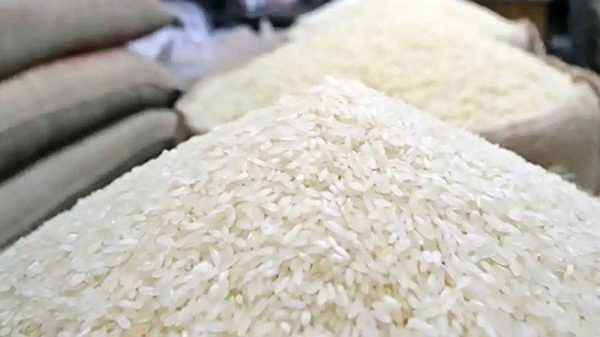
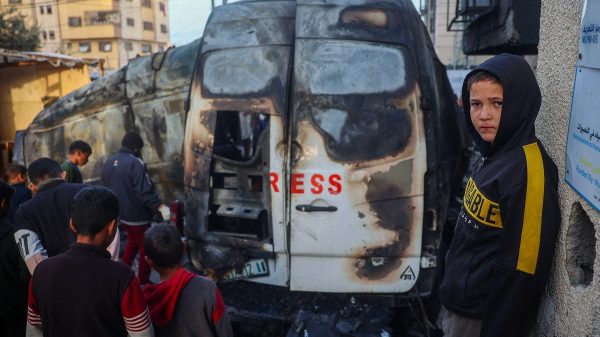
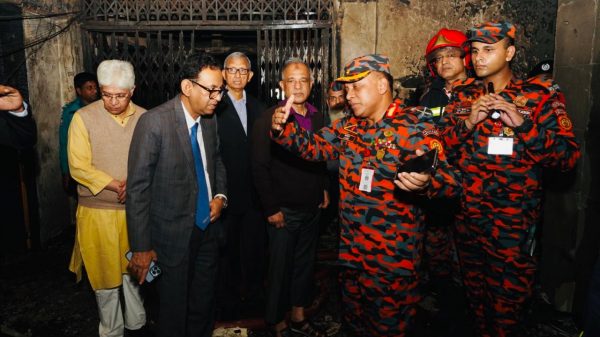
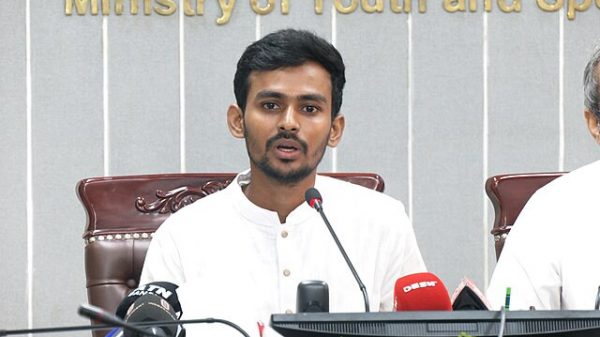
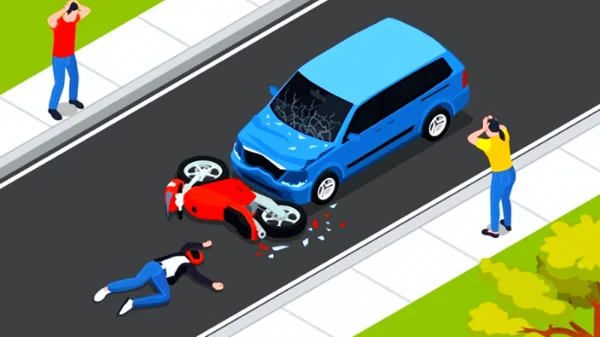
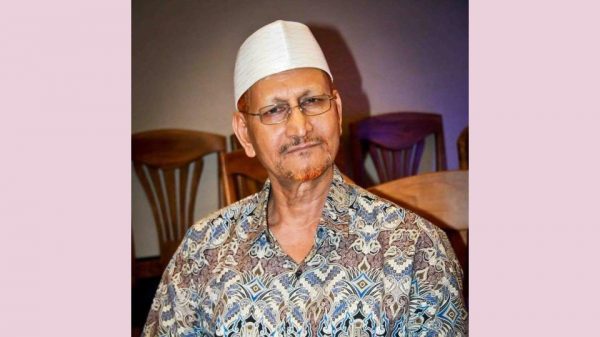

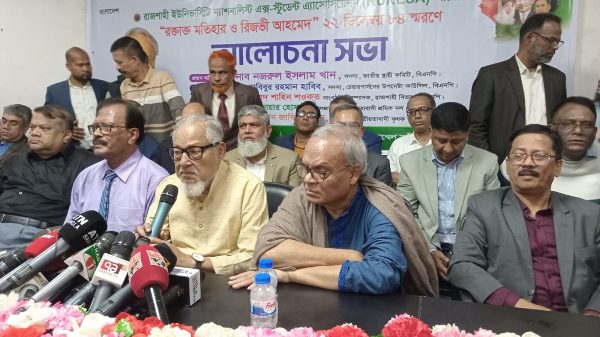
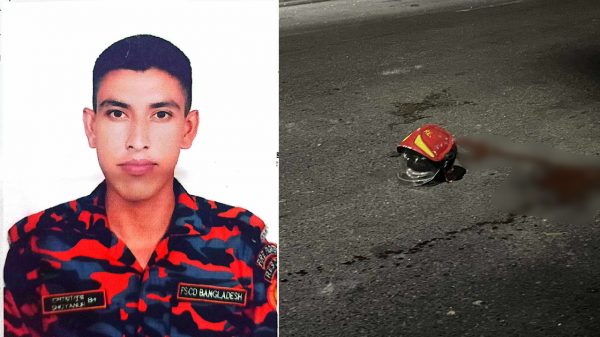
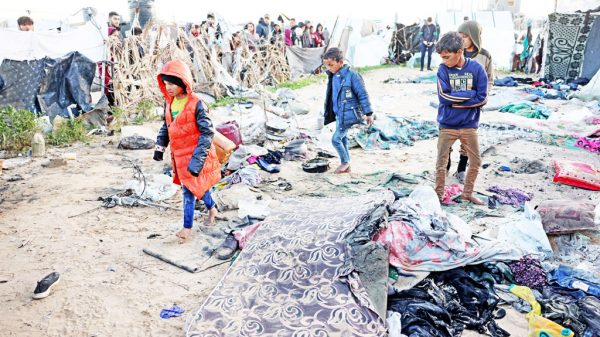











Leave a Reply